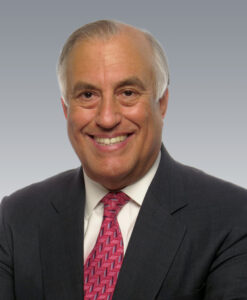If you are a heart patient or suffer from high blood pressure, you should be extra careful when taking medication for something even as mundane as seasonal allergies and flu. These medications contain compounds such as decongestants that tighten blood vessels throughout the body and cause a marked increase in blood pressure. Schedule an appointment with Dr. Steven Reisman to know which allergy medicines you can take safely if you suffer from heart diseases and elevated blood pressure levels without aggravating your condition or turning it into a bigger problem.

Spring is the loveliest time of the year. It brings beautiful, mild weather and colorful flowers, but it also has a high pollen count that can cause severe allergies. People suffering from allergies need to be very careful about which medicines to take and how to manage their condition, especially if they have a heart problem or face blood pressure complications.
Allergies are the body’s reaction to a normally harmless substance such as pollen, molds, animal dander, latex, certain foods, and insect stings. Our immune system reacts when it comes into contact with any harmless substance such as pollen or dust to resist their effects and protect the body. The allergy symptoms can range from mild rashes, nasal congestion, itchiness, and runny nose to severe issues such as shortness of breath, wheezing, and sudden drop in blood pressure.
Taking anti-allergies is the best way to cope with seasonal allergies. Some are available over-the-counter, while others are available by prescription. Many of these medicines contain decongestants that raise blood pressure, cause palpitations, interfere with other heart medications, and even lead to heart failure if used negligently.
Commonly Used Medicines for Treating Allergies
Several types of medications can be used for treating allergy symptoms and seeking relief from sneezing and itchy, runny, or blocked nose and red, watering eyes or rashes. Allergy medications are pills, liquids, inhalers, nasal sprays and eye drops, skin creams, and injections. You should be very careful when buying allergy medication if you suffer from any pre-existing health problems, as chemicals released by your immune system during an allergic reaction can aggravate your symptoms.
Medications to treat allergy symptoms
Some commonly available allergy medications include:
- Nasal corticosteroids;
- Antihistamines.
Manufacturers often include decongestants with antihistamines to provide relief from running nose accompanied by allergies in most cases. The presence of decongestants is indicated by the letter ‘D’ with the name of the medicine. These decongestants are phenylephrine, pseudoephedrine, or oxymetazoline that increase the heart rate and risk of high blood pressure. You should avoid taking decongestants that contain these agents without first consulting your doctor, as they can lead to severe complications.
Decongestants constrict blood vessels in the mucus membrane of the nose. Patients taking decongestants can also experience blood vessel constriction in other areas of the body, increasing the risk for an unhealthy increase in blood pressure or pulse. Hypertensive people should avoid taking decongestants. It is essential to check with your doctor before taking a new medication, whether for allergies or something else. You must know if it is safe in your condition and works with the medication you are currently using.
If you have high blood pressure, suffer from heart rhythm problems or palpitations and severe blockage in blood vessels, avoid taking decongestants like phenylephrine, pseudoephedrine, or oxymetazoline. They could cause problems if you have allergies and heart disease.
Allergy Medicines Considered Safe for People With Heart Conditions
Doctors recommended medication for people with a heart condition or high blood pressure include:
- Allegra;
- Zyrtec;
- Claritin.
Keep an eye on the active and inactive ingredients as medicines high in sodium also increase blood pressure, leading to further health issues. Avoid taking any medication without first seeking your doctor’s approval. Even ordinary-seeming over-the-counter allergy medications can result in severe side effects if you are not careful.
Patients who take different medications at the same time need to be extra careful. They are at an increased risk, both for drug reactions and suffering from kidney problems.
Visit a heart doctor to know more about the most effective allergy medications you can safely take if you have heart disease or high blood pressure to alleviate the painful symptoms and get quick relief. At the New York Cardiac Diagnostic Center, Dr. Steven Reisman will evaluate your symptoms and consider your medical history before prescribing the best course of treatment. He will determine your cardiovascular status to help determine the remedies that work best for your specific discomfort.

Dr. Steven Reisman is an internationally recognized cardiologist and heart specialist. He is a member of the American College of Cardiology, American Heart Association, and a founding member of the American Society of Nuclear Cardiology.
Dr. Reisman has presented original research findings for the early detection of "high risk" heart disease and severe coronary artery disease at the annual meetings of both the American College of Cardiology and the American Heart Association. Dr. Reisman was part of a group of doctors with the Food and Drug Administration who evaluated the dipyridamole thallium testing technique before the FDA approved it.
Dr. Steven Reisman's academic appointments include Assistant Professor of Medicine at the University of California and Assistant Professor at SUNY. Hospital appointments include the Director of Nuclear Cardiology at the Long Island College Hospital.



